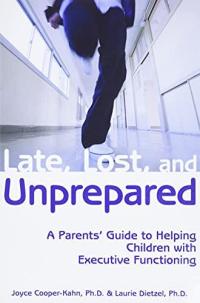So the core skills covered under cognitive regulation are planning and organizing, initiative and task monitoring, as well as working memory. So working memory is fascinating to me. Working memory is the ability to hold information in your mind long enough to use it. So you may call up information from prior knowledge, you may be listening to someone talk and hold onto that piece of information, compare it to what you already have in your mind and also think about it in relation to what you’re being asked to do.
So let’s say someone says today we’re going to talk about the Civil War, we’re going to talk about the three reasons we got into the Civil War. So now you’re pulling up in information that you already have about the Civil War and you’re trying to take in new information about what were the reasons we got into the Civil War and at the same time you’re supposed to be holding in mind that sense of what is the goal, why is the teacher talking about this, what am I supposed to get out of this?
If you have a weak working memory you have a scratchpad essentially but that scratchpad is smaller than for other people and the words are written in disappearing ink. They fall off the scratchpad more quickly than people expect. So very simple tasks can be really hard. If you have weak working memory and somebody says go upstairs, get your hat, your coat your shoes and your library books so we can go to the library on your way home from school, you may forget the whole sequence, you may remember one, maybe the last thing mom said is what you remember.
But it also extends to “I’m working on this long term project where did I end up yesterday, what was I working on, oh, yeah, what is the task we’re supposed to have here and what were the steps, what was I thinking yesterday when we got to the end of this?” But by that time you’re so overwhelmed that if you don’t have concrete ways to capture the information and you have to rely on a small working memory, then you’re going to give up.
And you get so overwhelmed when you have a weak working memory that it looks often like a lack of motivation, kids aren’t trying. So working memory is critical and interventions for working memory are critical. The ability to initiate a task, just the ability to start it when it’s time, sort of the ignition system on your car, sometimes that’s out of whack for people.
The ability to monitor where you are, like that GPS, here’s the task I have, I need to be done by April 13th, now where am I on this path towards getting that done, am I putting in enough effort and moving quickly enough to hit that? How am I going to juggle that in relation to my other demands? So that whole task monitoring piece tells you whether you are doing what’s needed and what’s expected of you, and if not helps you adjust along the way.
And then the other piece is the ability to plan and organize, which is just a huge category, right, and often when we think of problems with executive functioning the first thing we think of is a disorganized kid. So disorganized in the sense that you give them information, you give them a task and they have no clue what that means in terms of subtasks and breaking it down.
So one of the things I noticed particularly with reading is that if you give a child text and then you ask them, gee, what was this about, some of them with good organizational skills will give you the overview and the point of the text, someone who has weak planning and organization will just recount a series of details or tell you what was most interesting or tell you, you know, what stood out for them, well, the boy had a dog and he was wearing a red shirt.



